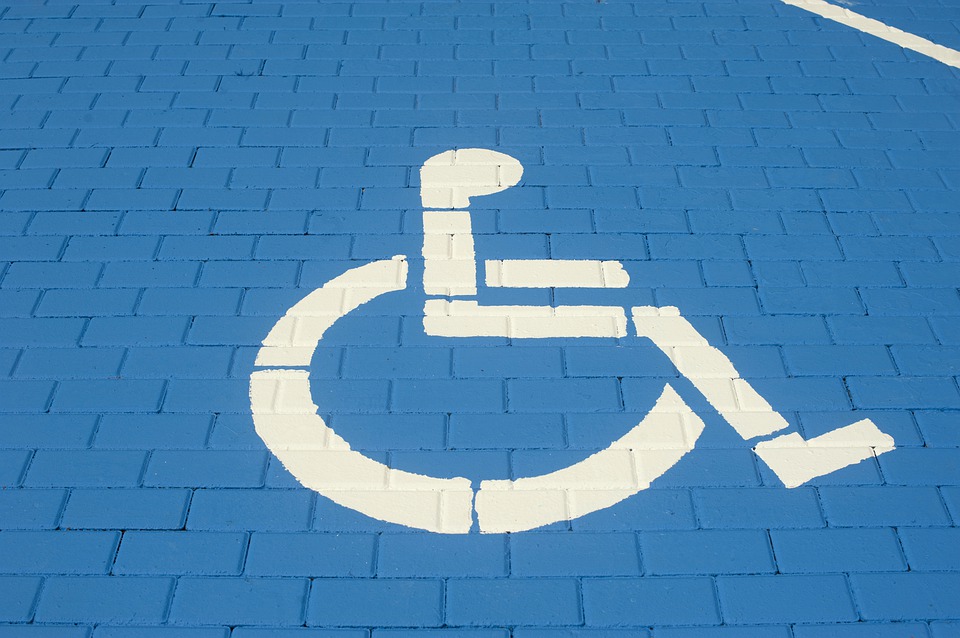If you’re living in Ohio and experiencing mobility issues as a result of your weight, you might be wondering if you’re able to get a handicap sticker for your car. Handicap permits certainly make life much easier when driving, as you can park much closer to your destination. However, many drivers aren’t sure whether or not they qualify.
For example: does obesity qualify for a handicap placard in Ohio? The answer is yes. Many Ohio residents with obesity are able to apply for disabled placards – however, it’s a bit more complicated than you might think. This guide can help you learn what is needed to get a handicap placard in Ohio and how you can get one as a person with obesity. Once you know how the process works, it becomes much easier to get your placard quickly, making it easier for you to travel and park conveniently.
Is being overweight a disability under ADA?
Many states use the Americans with Disabilities Act to determine whether or not a health condition qualifies as a disability. It states that a person can’t be discriminated against based on a disability. However, is obesity classed as a disability? Unfortunately, being overweight on its own is not considered a disability, and also won’t qualify for disability benefits.
This was determined by the courts in 2019, in the decision from the Richardson v. Chicago Transit Authority case. The ruling by the 7th U.S. Circuit Court of Appeals stated that extreme obesity can only be considered a disability if there’s evidence of an underlying physiological disorder or condition.
This means that if your obesity causes other serious health issues, like knee or joint problems or the inability to walk, then you might be able to qualify for a handicap placard in Ohio. It’s always best to talk to your doctor to learn more.

Can you get a handicap sticker for being obese in Ohio?
Under Ohio law, a person must meet one or more of the following health conditions to be eligible for a disabled parking placard:
- An inability to walk 200 feet without needing to rest
- Requires usage of a portable oxygen tank
- Has restrictions due to a lung disease
- Needs assistance from a cane, crutch, brace, prosthetic device, wheelchair, another person, or other assistive device for mobility
- Has a Class III or Class IV cardiac condition according to the American Heart Association standards
- Limited mobility due to a neurological, orthopedic or arthritic condition
- Legally blind or severely visually impaired
As you can see, obesity is not listed above. This means being overweight does not render you eligible for a placard. However, drivers who are obese are very likely to face some of the health concerns mentioned above, such as mobility limitations or a need for portable oxygen. This allows you to obtain your necessary placard due to complications from your weight, rather than directly due to obesity itself.
You would need to have certification from your doctor to apply for your placard, stating that you meet one of the qualifying conditions. Although they can’t state that the placard is required due to your weight, they can qualify you if you meet one of the conditions above that’s caused by your weight.

What is needed to get a handicap placard in Ohio?
If you think you qualify for a handicap placard in Ohio, your first step is to talk to a medical professional, such as your local doctor, or to organize a telehealth consultation. Your doctor will learn more about your health conditions and review your medical records, then make an assessment based on their expertise.
The state of Ohio requires the medical professional to complete Form BMV 4234 – Health Care Provider Certification of Eligibility for Disability License Plates. This is legal documentation that states your eligibility for the placard. They’ll also need to provide a signed letter that states the duration of your disability, so the state knows if they should issue you a temporary or permanent placard.
Once you have those documents ready, you can complete Form BMV 4826 – Application for Disability Placards. You’ll also need to pay a small application fee. You’ll then be issued your placard. Permanent placards will need to be renewed yearly, but temporary placards will expire – when this happens, you’ll need to go through the process again to confirm that you’re still eligible.
Although the application process seems complex, it should be straightforward for anyone with a genuine disability or mobility issue due to their weight. Unfortunately, Ohio and other states have had instances of fraud in the past, with people trying to claim disabled placards without a genuine need; for this reason, states need to be stringent when it comes to their application processes.
If you’re living in Ohio and need help with your application, Dr. Handicap can help with your medical certification, so get in touch today! It’s worth the time and effort, as once you receive your disabled parking placard, life will become so much easier, giving you the confidence and freedom to travel without needing to worry about the stress of finding an accessible parking spot.
Featured image by Robert Ruggiero via Unsplash



